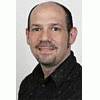AVIVA-Berlin >
Public Affairs
AVIVA-BERLIN.de im Februar 2026 -
Beitrag vom 12.03.2009

Anti-Semitism research center in Germany criticized for failing to urge boycott of Durban II
Benjamin Weinthal
Article by Benjamin Weinthal, Jerusalem Post Correspondent, Berlin. The scandal-plagued Berlin Center for Anti-Semitism Research has been thrown into a new crisis for its failure ...
... to advise the German government to pull out of the so-called Durban II meeting - the UNôÇs World Conference Against Racism - which opens on April 20 in Geneva.
The International Auschwitz Committee, the director of the Yale University Initiative for the Interdisciplinary Study of Antisemitism, and the Berlin German Jewish community have slammed the Center for its participation in Durban II and its neglect of IranôÇs genocidal threats toward Israel.
According to critics, the Center has departed from its core mission to research anti-Semitism and is trivializing the Holocaust by comparing it with hatred of Islam.
"The center should say that [Durban II] is anti-Semitism", Noah Flug, chairman of the Center of Organizations of Holocaust Survivors and president of the International Auschwitz Committee, told The Jerusalem Post on Tuesday.
It was a "mistake" that the center was not publicly urging the German government to boycott Durban II, Flug said, speaking from Jerusalem.
Wolfgang Benz, the Berlin CenterôÇs director, sent the Post a statement late last month saying he would neither grant interviews nor comment, but he "authorized" two academics at the center, Dr. Peter Widmann and Dr. Angelika KûÑnigseder, to answer queries. "It is not our function as academics to tell the German government what to do", Widmann told the Post.
Widmann said Dr. Juliane Wetzel from the center was advising the German Foreign Ministry about participating in Durban II. When asked if Wetzel recommended that Germany walk away from the conference because of passages in its draft final statement deemed to be anti-Semitic by the Italian Foreign Ministry, KûÑnigseder said Wetzel did "not have a clear position".
Wetzel has refused multiple queries from the Post.
KûÑnigseder and Widmann said Wetzel stressed that she was discussing Durban II with Dr. Benedikt Haller, the German Foreign MinistryôÇs special representative for relations with Jewish organizations and issues relating to anti-Semitism. Haller declined to comment.
Italy, the United States, Canada and Israel are boycotting the Durban II conference because of Jew-hatred and radical anti-Israeli statements.
Maya Zehden, a spokeswoman for the 12,000-member Berlin Jewish community told the Post the community was "irritated" by the centerôÇs refusal to "take a position" against GermanyôÇs participation in Durban II. Zehden said the CenterôÇs focus on anti-Semitism should prompt it to raise its voice against the anti-Israel Durban II spectacle in Geneva.
"They [the center] are preoccupied with Islamophobia and researching prejudices", and not anti-Semitism, Zehden said.
The centerôÇs Benz provoked international criticism by stating last December: "The fury of the new enemies of Islam parallels the older rage of anti-Semites against the Jews."
Flug from the Auschwitz Committee and Holocaust survivors organization said "there is no comparison between anti-Semitism and Islamophobia. Anti-Semitism showed what the end is. The end is Auschwitz." Germany "must examine and analyze whether it is important to support the center", Flug said.
Speaking from the US, Dr. Charles Small, director of the Yale University Initiative for the Interdisciplinary Study of Antisemitism, told the Post, "Martin Luther King Jr. taught that all of our actions as well as our inactions have equal ramifications. The lesson of the Holocaust was that silence in the face of injustice was immoral - especially when it comes to genocidal anti-Semitsm. The silence among those who understand contemporary anti-Semitism - from Durban II to the Iranian regimeôÇs threat and German economic relations with the regime - to remain silent is most troubling."
Widmann said the center had not criticized the flourishing German economic relationship with a regime in Iran that denied the Holocaust. "We are not a political institute."
A prominent anti-Semitism expert, Anetta Kahane, a Jew who was raised in the former German Democratic Republic and is now the executive director of the Amadeu-Antonio Foundation, said it "would have been helpful for us if the center had researched continuously and systematically the development of anti-Semitism in East Germany and afterward".
"In eastern Germany, we are still dealing with strong agreement with and tolerance of neo-Nazi ideology, expressed among other things in the electoral successes of the ultra-rightist NPD [National Democratic Party of Germany] in the new states. At the same time, the anti-Semitic/anti-Zionist tradition in East GermanyôÇs national identity has once more been reactivated through the Left Party. Both developments contribute to making the climate in Germany more susceptible to anti-Semitism."
This article can also be read at:
The Jerusalem Post
Copyright 1995- 2009 The Jerusalem Post - www.jpost.com
Weiterlesen auf AVIVA-Berlin:
Lesen Sie einen weiteren Beitrag von Benjamin Weinthal zum Thema "Linker Antisemitismus" auf AVIVA-Berlin.
und den Beitrag von Benjamin Weinthal "German Center ignored Anti-Semitism".